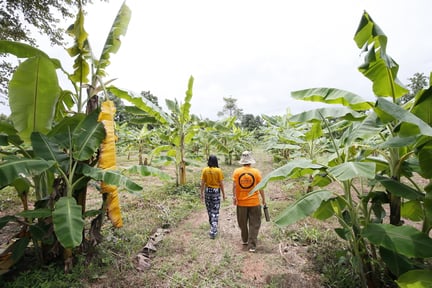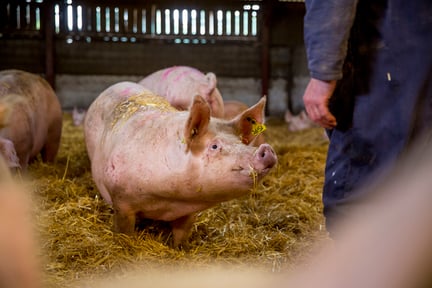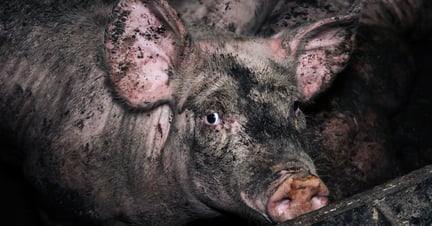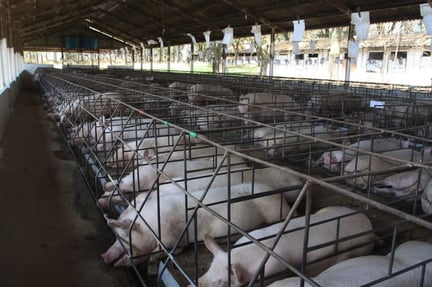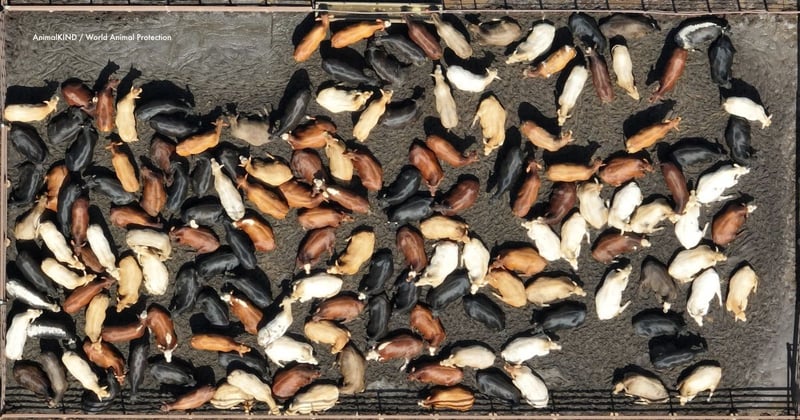
The first Global Methane Status Report launched at COP30 shows the world is not on track to cut methane emissions.
The first ever Global Methane Status Report (GMSR) was launched at COP30 during the Global Methane Pledge Ministerial, attended by ministers from 159 participating countries and the European Union.
The report, produced by the UN Environment Programme and the Climate and Clean Air Coalition, provides a global overview of progress under the Global Methane Pledge, which aims to reduce methane emissions by 30 percent by 2030 compared with 2020 levels.
The new assessment confirms that although some progress has been made, the world is still not on track to meet the Pledge's 2030 target.
Methane emissions remain high, and the report highlights that significant mitigation potential remains untapped across major sectors, including fossil fuels, waste and agriculture.
Agriculture is identified as one of the most challenging sectors to achieve rapid reductions due to its structural links to livestock, manure and rice cultivation.
These findings reinforce long-standing concerns that the current pace of change is too slow to meet climate goals.
Meaningful action on factory farming
Continued reliance on technological fixes risks side-lining the systemic drivers of agricultural methane emissions.
Intensive livestock production contributes significantly to global methane, yet remains insufficiently addressed within many national mitigation strategies.
Today's announcement shows methane emissions continue to rise at a shocking and unsustainable rate, and it's no surprise this is largely due to the intense factory farming of animals.
The Pledge continues to focus on ineffective technological fixes, such as selective breeding and feed additives, which completely fail to address factory farming as the root cause of methane emissions.
Historically, methane emission numbers are seriously undercounted, designed to keep animals trapped in factory farming conditions, where cows, pigs, chickens and more are exploited for profit.
Governments must support a just transition away from factory farming - the very model fuelling emissions - toward humane, equitable and sustainable food systems. The best way to reduce methane emissions is to reduce the number of animals suffering on factory farms.
Factory farming is connected to wider global challenges
We are working to transform the global food system by ending the use of factory farming and increasing support for humane and sustainable alternatives.
This transition is not only critical for the climate, but also for biodiversity, environmental protection and the wellbeing of both farmed and wild animals.
Building a food system that moves away from intensive livestock production would also ease pressures on ecosystems, reduce demand for land conversion and help protect wildlife habitats.
These connections demonstrate that tackling methane is intertwined with improving animal welfare and protecting nature globally.
What is needed
We are urging governments to:
- ensure methane reduction strategies address the scale and intensity of livestock production
- support a just transition for farmers towards more humane and sustainable food systems
- improve transparency and accuracy in methane measurement and reporting
- align climate, biodiversity and animal welfare goals within national agriculture policies
We will continue to call for a shift in focus from short-term technological fixes to meaningful food system transformation that reduces the number of animals kept in industrial conditions.
Related content
Just Transition In Food Systems
Discover why a just transition is essential to end factory farming, protect animals, and build sustainable food systems that tackle climate change.
Conference of the Parties (COP) Guide
Learn about the Conference of the Parties (COP) and how World Animal Protection advocates for animals in global climate and biodiversity discussions. Take action today!
High animal welfare on farms
No future for factory farming
Find out how we work with the food industry to improve farm animal welfare and keep animals in an environment where they can benefit from a life worth living
